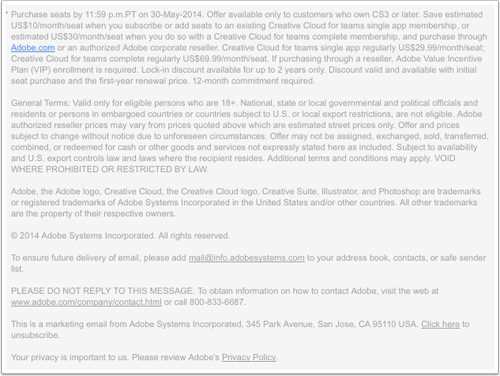Like many people, I make purchases online. This usually means the vendor adds me to their mailing list. I normally don’t care, that mail all filters to my “commercial” folder (my own personal version of tabs) and I can browse it at my leisure.
At this time of year, though, email marketers go into a bit of overdrive and that folder fills with 20 – 30 or more emails a day. The volume is no so much of a problem, but it can get annoying to try and find mail I want in all the crud from random vendors.
In some cases, I don’t even know who the company is or why they have my address. Today’s example was a florist in Maryland. Eventually I figured out I’d purchased from them back in 2007 to send flowers to a colleague when her mother passed away. Apparently, they’re doing so badly they need every dollar they can find.
What it does mean, though, is that I unsubscribe from more mail in December than I do through the rest of the year. I don’t mind the occasional mail, even weekly is no big deal. But when that frequency drastically increases, or someone has not bothered to mail me for 5+ years, I just don’t want that mail anymore.
Dana Perino used the term ‘unsubscribe Tuesday‘
Read More